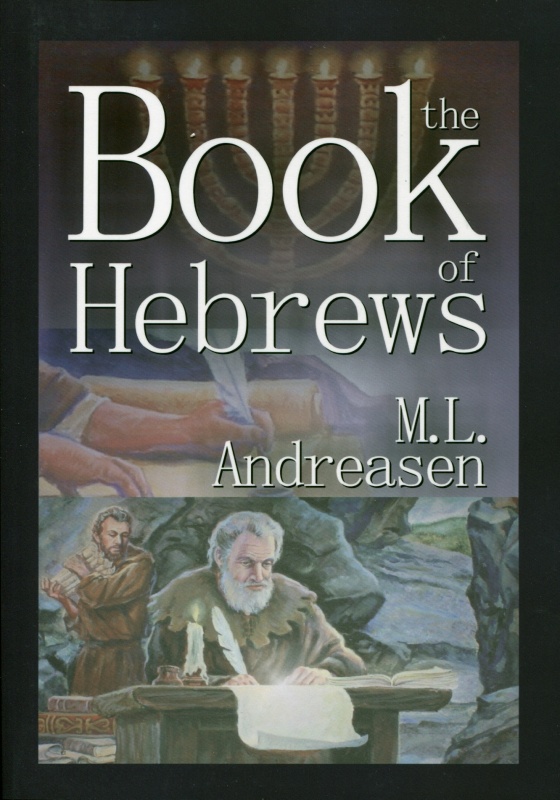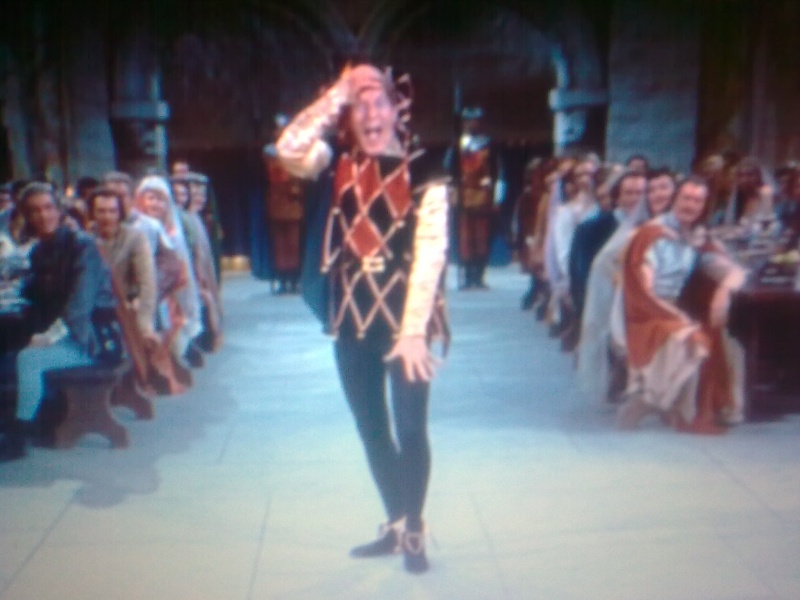Thank-you B.B. You have a very intelligent, articulate, abstract, and detailed writing-style. It reminds me of someone I communicated with a long time ago named Veronica ab Thule. She was quite insightful, abstract, and otherworldly. I'm not sure if she was the author of the above book, but I think so. Some of our online-conversation is contained somewhere in my U.S.S.S. threads. Anyway -- When one reviews church-history, the absurdities and horrors are MOST Discouraging and Disillusioning. When one faces reality in modernity, the absurdities and horrors are MOST Discouraging and Disillusioning. I walked away from the church in body, but not in soul. A long time ago, I found the following contrasting approaches to be MOST Enlightening when placed side-by-side in constructive-conflict with each-other:
1. The Seventh-day Adventist Church in Loma Linda, California.
2. The Crystal Cathedral in Garden Grove, California.
3. Christian Radio and Television in Southern California.
4. New-Age Bookstores and Whole Life Expos in Southern California.
5. Southern California. Period.
Then 9/11, the Iraq War, and the Internet ignited an Information-War which has just about destroyed me, while simultaneously being MOST Enlightening. I've tried to resolve my Crisis of Faith, Hope, and Love with my internet-posting -- particularly with my two United States of the Solar System: 2133 A.D. threads -- but there has been no peace or resolution. Just the Opposite. I continue to think that I need to post a lot less -- and read a lot more. Here's more of my current posting-project. I don't endorse all of it -- but I think it is MOST Interesting Reading!! Try combining this material (published in 1890) with a more modern Eden in Egypt by Ralph Ellis -- and The Gods of Eden by William Bramley. Once again, the Old-Testament and Ellen White's Version of the Old-Testament are VERY Different!! I tend to rely more upon Ellen White, Ralph Ellis, and William Bramley for the historical-material -- and I depend more upon Job through Malachi for the theological-material. I remain puzzled as to why Ellen White didn't write a Job through Malachi Grammatical-Historical Commentary (possibly with the addition of Deuteronomy)?! I should probably take a close look at the SDA Bible Commentary covering this territory. I continue to think that the material I'm presently posting would be MOST Interesting in a Science-Fictional Version!! Stargate SG-1 on Steroids!! I'm presently treating it as Historical-Fiction (but isn't ALL History really Historical-Fiction to greater or lesser degrees)??
BTW -- Lucio Bernardo Silvestre reminds me of Isaac Newton!! Does ANYONE Know What I'm Talking About??!! One More Thing. What if One or More Archangels Must be Present to Activate and Operate the Ark of the Covent (sort of like a password, facial-recognition, etc.)?? Think about Stargate SG-1 The Ark of Truth and Stargate Atlantis. Remember that Arctic Scene with John Sheppard activating that Ancient-Chair (just because of who he was)?? What if the Ark of the Covenant constitutes at least one aspect of the Weapons of Mass Destruction which we were supposedly looking-for in Iraq??!! What if the Ark of the Covenant is Simply a Keyboard for a Yet Undisclosed Ark of Planetary Transportation and Destruction?? What Would Michael and/or Gabriel Say?? What Would Bartleby and Loki Say?? What Would Lilith and Eve Say?? What if One Archangel was Anciently Deposed?? What if Another Archangel was Recently Deposed?? What if Humanity is Presently Without Divine-Guidance?? What if Humanity has Consummated It's Rebellion Against God?? What Would Sherry Shriner Say?? That's All I'm Going to Say About THAT!! Don't be Frightened!! I Mean No Harm!! I Come in Peace!! Wait a Minute!! No I Don't!! You Go In Pieces!!
http://www.whiteestate.org/books/pp/pp22.html The people of Egypt, in order to supply themselves with food during the famine, had sold to the crown their cattle and lands, and had finally bound themselves to perpetual serfdom. Joseph wisely provided for their release; he permitted them to become royal tenants, holding their lands of the king, and paying an annual tribute of one fifth of the products of their labor.
But the children of Jacob were not under the necessity of making such conditions. On account of the service that Joseph had rendered the Egyptian nation, they were not only granted a part of the country as a home, but were exempted from taxation, and liberally supplied with food during the continuance of the famine. The king publicly acknowledged that it was through the merciful interposition of the God of Joseph that Egypt enjoyed plenty while other nations were perishing from famine. He saw, too, that Joseph's management had greatly enriched the kingdom, and his gratitude surrounded the family of Jacob with royal favor.
But as time rolled on, the great man to whom Egypt owed so much, and the generation blessed by his labors, passed to the grave. And "there arose up a new king over Egypt, which knew not Joseph." Not that he was ignorant of Joseph's services to the nation, but he wished to make no recognition of them, and, so far as possible, to bury them in oblivion. "And he said unto his people, Behold, the people of the children of Israel are more and mightier than we: come on, let us deal wisely with them; lest they multiply, and it come to pass, that, when there falleth out any war, they join also unto our enemies, and fight against us, and so get them up out of the land."
The Israelites had already become very numerous; they "were fruitful, and increased abundantly, and multiplied, and waxed exceeding mighty; and the land was filled with them." Under Joseph's fostering care, and the favor of the king who was then ruling, they had spread rapidly over the land. But they had kept themselves a distinct race, having nothing in common with the Egyptians in customs or religion; and their increasing numbers now excited the fears of the king and his people, lest in case of war they should join themselves with the enemies of Egypt. Yet policy forbade their banishment from the country. Many of them were able and understanding workmen, and they added greatly to the wealth of the nation; the king needed such laborers for the erection of his magnificent palaces and temples. Accordingly he ranked them with the Egyptians who had sold themselves with their possessions to the kingdom. Soon taskmasters were set over them, and their slavery became complete. "And the Egyptians made the children of Israel to serve with rigor: and they made their lives bitter with hard bondage, in mortar, and in brick, and in all manner of service in the field: all their service, wherein they made them serve, was with rigor." "But the more they afflicted them, the more they multiplied and grew."
The king and his counselors had hoped to subdue the Israelites with hard labor, and thus decrease their numbers and crush out their independent spirit. Failing to accomplish their purpose, they proceeded to more cruel measures. Orders were issued to the women whose employment gave them opportunity for executing the command, to destroy the Hebrew male children at their birth. Satan was the mover in this matter. He knew that a deliverer was to be raised up among the Israelites; and by leading the king to destroy their children he hoped to defeat the divine purpose. But the women feared God, and dared not execute the cruel mandate. The Lord approved their course, and prospered them. The king, angry at the failure of his design, made the command more urgent and extensive. The whole nation was called upon to hunt out and slaughter his helpless victims. "And Pharaoh charged all his people, saying, Every son that is born ye shall cast into the river, and every daughter ye shall save alive."
While this decree was in full force a son was born to Amram and Jochebed, devout Israelites of the tribe of Levi. The babe was "a goodly child;" and the parents, believing that the time of Israel's release was drawing near, and that God would raise up a deliverer for His people, determined that their little one should not be sacrificed. Faith in God strengthened their hearts, "and they were not afraid of the king's commandment." Hebrews 11:23.
The mother succeeded in concealing the child for three months. Then, finding that she could no longer keep him safely, she prepared a little ark of rushes, making it watertight by means of slime and pitch; and laying the babe therein, she placed it among the flags at the river's brink. She dared not remain to guard it, lest the child's life and her own should be forfeited; but his sister, Miriam, lingered near, apparently indifferent, but anxiously watching to see what would become of her little brother. And there were other watchers. The mother's earnest prayers had committed her child to the care of God; and angels, unseen, hovered above his lowly resting place. Angels directed Pharaoh's daughter thither. Her curiosity was excited by the little basket, and as she looked upon the beautiful child within, she read the story at a glance. The tears of the babe awakened her compassion, and her sympathies went out to the unknown mother who had resorted to this means to preserve the life of her precious little one. She determined that he should be saved; she would adopt him as her own.
Miriam had been secretly noting every movement; perceiving that the child was tenderly regarded, she ventured nearer, and at last said, "Shall I go and call thee a nurse of the Hebrew women, that she may nurse the child for thee?" And permission was given.
The sister hastened to her mother with the happy news, and without delay returned with her to the presence of Pharaoh's daughter. "Take this chid away, and nurse it for me, and I will give thee thy wages," said the princess.
God had heard the mother's prayers; her faith had been rewarded. It was with deep gratitude that she entered upon her now safe and happy task. She faithfully improved her opportunity to educate her child for God. She felt confident that he had been preserved for some great work, and she knew that he must soon be given up to his royal mother, to be surrounded with influences that would tend to lead him away from God. All this rendered her more diligent and careful in his instruction than in that of her other children. She endeavored to imbue his mind with the fear of God and the love of truth and justice, and earnestly prayed that he might be preserved from every corrupting influence. She showed him the folly and sin of idolatry, and early taught him to bow down and pray to the living God, who alone could hear him and help him in every emergency.
She kept the boy as long as she could, but was obliged to give him up when he was about twelve years old. From his humble cabin home he was taken to the royal palace, to the daughter of Pharaoh, "and he became her son." Yet even here he did not lose the impressions received in childhood. The lessons learned at his mother's side could not be forgotten. They were a shield from the pride, the infidelity, and the vice that flourished amid the splendor of the court.
How far-reaching in its results was the influence of that one Hebrew woman, and she an exile and a slave! The whole future life of Moses, the great mission which he fulfilled as the leader of Israel, testifies to the importance of the work of the Christian mother. There is no other work that can equal this. To a very great extent the mother holds in her own hands the destiny of her children. She is dealing with developing minds and characters, working not alone for time, but for eternity. She is sowing seed that will spring up and bear fruit, either for good or for evil. She has not to paint a form of beauty upon canvas or to chisel it from marble, but to impress upon a human soul the image of the divine. Especially during their early years the responsibility rests upon her of forming the character of her children. The impressions now made upon their developing minds will remain with them all through life. Parents should direct the instruction and training of their children while very young, to the end that they may be Christians. They are placed in our care to be trained, not as heirs to the throne of an earthly empire, but as kings unto God, to reign through unending ages.
Let every mother feel that her moments are priceless; her work will be tested in the solemn day of accounts. Then it will be found that many of the failures and crimes of men and women have resulted from the ignorance and neglect of those whose duty it was to guide their childish feet in the right way. Then it will be found that many who have blessed the world with the light of genius and truth and holiness, owe the principles that were the mainspring of their influence and success to a praying, Christian mother.
At the court of Pharaoh, Moses received the highest civil and military training. The monarch had determined to make his adopted grandson his successor on the throne, and the youth was educated for his high station. "And Moses was learned in all the wisdom of the Egyptians, and was mighty in words and in deeds." Acts 7:22. His ability as a military leader made him a favorite with the armies of Egypt, and he was generally regarded as a remarkable character. Satan had been defeated in his purpose. The very decree condemning the Hebrew children to death had been overruled by God for the training and education of the future leader of His people.
The elders of Israel were taught by angels that the time for their deliverance was near, and that Moses was the man whom God would employ to accomplish this work. Angels instructed Moses also that Jehovah had chosen him to break the bondage of His people. He, supposing that they were to obtain their freedom by force of arms, expected to lead the Hebrew host against the armies of Egypt, and having this in view, he guarded his affections, lest in his attachment to his foster mother or to Pharaoh he would not be free to do the will of God.
By the laws of Egypt all who occupied the throne of the Pharaohs must become members of the priestly caste; and Moses, as the heir apparent, was to be initiated into the mysteries of the national religion. This duty was committed to the priests. But while he was an ardent and untiring student, he could not be induced to participate in the worship of the gods. He was threatened with the loss of the crown, and warned that he would be disowned by the princess should he persist in his adherence to the Hebrew faith. But he was unshaken in his determination to render homage to none save the one God, the Maker of heaven and earth. He reasoned with priests and worshipers, showing the folly of their superstitious veneration of senseless objects. None could refute his arguments or change his purpose, yet for the time his firmness was tolerated on account of his high position and the favor with which he was regarded by both the king and the people.
"By faith Moses, when he was come to years, refused to be called the son of Pharaoh's daughter; choosing rather to suffer affliction with the people of God, than to enjoy the pleasures of sin for a season; esteeming the reproach of Christ greater riches than the treasures in Egypt: for he had respect unto the recompense of the reward." Hebrews 11:24-26. Moses was fitted to take pre-eminence among the great of the earth, to shine in the courts of its most glorious kingdom, and to sway the scepter of its power. His intellectual greatness distinguishes him above the great men of all ages. As historian, poet, philosopher, general of armies, and legislator, he stands without a peer. Yet with the world before him, he had the moral strength to refuse the flattering prospects of wealth and greatness and fame, "choosing rather to suffer affliction with the people of God, than to enjoy the pleasures of sin for a season."
Moses had been instructed in regard to the final reward to be given to the humble and obedient servants of God, and worldly gain sank to its proper insignificance in comparison. The magnificent palace of Pharaoh and the monarch's throne were held out as an inducement to Moses; but he knew that the sinful pleasures that make men forget God were in its lordly courts. He looked beyond the gorgeous palace, beyond a monarch's crown, to the high honors that will be bestowed on the saints of the Most High in a kingdom untainted by sin. He saw by faith an imperishable crown that the King of heaven would place on the brow of the overcomer. This faith led him to turn away from the lordly ones of earth and join the humble, poor, despised nation that had chosen to obey God rather than to serve sin.
Moses remained at court until he was forty years of age. His thoughts often turned upon the abject condition of his people, and he visited his brethren in their servitude, and encouraged them with the assurance that God would work for their deliverance. Often, stung to resentment by the sight of injustice and oppression, he burned to avenge their wrongs. One day, while thus abroad, seeing an Egyptian smiting an Israelite, he sprang forward and slew the Egyptian. Except the Israelite, there had been no witness to the deed, and Moses immediately buried the body in the sand. He had now shown himself ready to maintain the cause of his people, and he hoped to see them rise to recover their liberty. "He supposed his brethren would have understood how that God by his hand would deliver them; but they understood not." Acts 7:25. They were not yet prepared for freedom. On the following day Moses saw two Hebrews striving together, one of them evidently at fault. Moses reproved the offender, who at once retaliated upon the reprover, denying his right to interfere, and basely accusing him of crime: "Who made thee a prince and a judge over us?" he said. "Intendest thou to kill me, as thou killedst the Egyptian?"
The whole matter was quickly made known to the Egyptians, and, greatly exaggerated, soon reached the ears of Pharaoh. It was represented to the king that this act meant much; that Moses designed to lead his people against the Egyptians, to overthrow the government, and to seat himself upon the throne; and that there could be no security for the kingdom while he lived. It was at once determined by the monarch that he should die; but, becoming aware of his danger, he made his escape and fled toward Arabia.
The Lord directed his course, and he found a home with Jethro, the priest and prince of Midian, who was also a worshiper of God. After a time Moses married one of the daughters of Jethro; and here, in the service of his father-in-law, as keeper of his flocks, he remained forty years.
In slaying the Egyptian, Moses had fallen into the same error so often committed by his fathers, of taking into their own hands the work that God had promised to do. It was not God's will to deliver His people by warfare, as Moses thought, but by His own mighty power, that the glory might be ascribed to Him alone. Yet even this rash act was overruled by God to accomplish His purposes. Moses was not prepared for his great work. He had yet to learn the same lesson of faith that Abraham and Jacob had been taught--not to rely upon human strength or wisdom, but upon the power of God for the fulfillment of His promises. And there were other lessons that, amid the solitude of the mountains, Moses was to receive. In the school of self-denial and hardship he was to learn patience, to temper his passions. Before he could govern wisely, he must be trained to obey. His own heart must be fully in harmony with God before he could teach the knowledge of His will to Israel. By his own experience he must be prepared to exercise a fatherly care over all who needed his help.
Man would have dispensed with that long period of toil and obscurity, deeming it a great loss of time. But Infinite Wisdom called him who was to become the leader of his people to spend forty years in the humble work of a shepherd. The habits of caretaking, of self-forgetfulness and tender solicitude for his flock, thus developed, would prepare him to become the compassionate, longsuffering shepherd of Israel. No advantage that human training or culture could bestow, could be a substitute for this experience.
Moses had been learning much that he must unlearn. The influences that had surrounded him in Egypt--the love of his foster mother, his own high position as the king's grandson, the dissipation on every hand, the refinement, the subtlety, and the mysticism of a false religion, the splendor of idolatrous worship, the solemn grandeur of architecture and sculpture--all had left deep impressions upon his developing mind and had molded, to some extent, his habits and character. Time, change of surroundings, and communion with God could remove these impressions. It would require on the part of Moses himself a struggle as for life to renounce error and accept truth, but God would be his helper when the conflict should be too severe for human strength.
In all who have been chosen to accomplish a work for God the human element is seen. Yet they have not been men of stereotyped habits and character, who were satisfied to remain in that condition. They earnestly desired to obtain wisdom from God and to learn to work for Him. Says the apostle, "If any of you lack wisdom, let him ask of God, that giveth to all men liberally, and upbraideth not; and it shall be given him." James 1:5. But God will not impart to men divine light while they are content to remain in darkness. In order to receive God's help, man must realize his weakness and deficiency; he must apply his own mind to the great change to be wrought in himself; he must be aroused to earnest and persevering prayer and effort. Wrong habits and customs must be shaken off; and it is only by determined endeavor to correct these errors and to conform to right principles that the victory can be gained. Many never attain to the position that they might occupy, because they wait for God to do for them that which He has given them power to do for themselves. All who are fitted for usefulness must be trained by the severest mental and moral discipline, and God will assist them by uniting divine power with human effort.
Shut in by the bulwarks of the mountains, Moses was alone with God. The magnificent temples of Egypt no longer impressed his mind with their superstition and falsehood. In the solemn grandeur of the everlasting hills he beheld the majesty of the Most High, and in contrast realized how powerless and insignificant were the gods of Egypt. Everywhere the Creator's name was written. Moses seemed to stand in His presence and to be over-shadowed by His power. Here his pride and self-sufficiency were swept away. In the stern simplicity of his wilderness life, the results of the ease and luxury of Egypt disappeared. Moses became patient, reverent, and humble, "very meek, above all the men which were upon the face of the earth" (Numbers 12:3), yet strong in faith in the mighty God of Jacob.
As the years rolled on, and he wandered with his flocks in solitary places, pondering upon the oppressed condition of his people, he recounted the dealings of God with his fathers and the promises that were the heritage of the chosen nation, and his prayers for Israel ascended by day and by night. Heavenly angels shed their light around him. Here, under the inspiration of the Holy Spirit, he wrote the book of Genesis. The long years spent amid the desert solitudes were rich in blessing, not alone to Moses and his people, but to the world in all succeeding ages.
"And it came to pass in process of time, that the king of Egypt died: and the children of Israel sighed by reason of the bondage, and they cried, and their cry came up unto God by reason of the bondage. And God heard their groaning, and God remembered His covenant with Abraham, with Isaac, and with Jacob. And God looked upon the children of Israel, and God had respect unto them." The time for Israel's deliverance had come. But God's purpose was to be accomplished in a manner to pour contempt on human pride. The deliverer was to go forth as a humble shepherd, with only a rod in his hand; but God would make that rod the symbol of His power. Leading his flocks one day near Horeb, "the mountain of God," Moses saw a bush in flames, branches, foliage, and trunk, all burning, yet seeming not to be consumed. He drew near to view the wonderful sight, when a voice from out of the flame called him by name. With trembling lips he answered, "Here am I." He was warned not to approach irreverently: "Put off thy shoes from off thy feet; for the place whereon thou standest is holy ground. . . . I am the God of thy father, the God of Abraham, the God of Isaac, and the God of Jacob." It was He who, as the Angel of the covenant, had revealed Himself to the fathers in ages past. "And Moses hid his face; for he was afraid to look upon God."
Humility and reverence should characterize the deportment of all who come into the presence of God. In the name of Jesus we may come before Him with confidence, but we must not approach Him with the boldness of presumption, as though He were on a level with ourselves. There are those who address the great and all-powerful and holy God, who dwelleth in light unapproachable, as they would address an equal, or even an inferior. There are those who conduct themselves in His house as they would not presume to do in the audience chamber of an earthly ruler. These should remember that they are in His sight whom seraphim adore, before whom angels veil their faces. God is greatly to be reverenced; all who truly realize His presence will bow in humility before Him, and, like Jacob beholding the vision of God, they will cry out, "How dreadful is this place! This is none other but the house of God, and this is the gate of heaven."
As Moses waited in reverent awe before God the words continued: "I have surely seen the affliction of My people which are in Egypt, and have heard their cry by reason of their taskmasters; for I know their sorrows; and I am come down to deliver them out of the hand of the Egyptians, and to bring them up out of that land unto a good land and a large, unto a land flowing with milk and honey. . . . Come now therefore, and I will send thee unto Pharaoh, that thou mayest bring forth My people the children of Israel out of Egypt."
Amazed and terrified at the command, Moses drew back, saying, "Who am I, that I should go unto Pharaoh, and that I should bring forth the children of Israel out of Egypt?" The reply was, "Certainly I will be with thee; and this shall be a token unto thee, that I have sent thee: When thou hast brought forth the people out of Egypt, ye shall serve God upon this mountain."
Moses thought of the difficulties to be encountered, of the blindness, ignorance, and unbelief of his people, many of whom were almost destitute of a knowledge of God. "Behold," he said, "when I come unto the children of Israel, and shall say unto them, The God of your fathers hath sent me unto you; and they shall say to me, What is His name? what shall I say unto them?" The answer was-- "I Am That I Am." "Thus shalt thou say unto the children of Israel, I Am hath sent me unto you."
Moses was commanded first to assemble the elders of Israel, the most noble and righteous among them, who had long grieved because of their bondage, and to declare to them a message from God, with a promise of deliverance. Then he was to go with the elders before the king, and say to him--
"The Lord God of the Hebrews hath met with us: and now let us go, we beseech thee, three days' journey into the wilderness, that we may sacrifice to the Lord our God."
Moses was forewarned that Pharaoh would resist the appeal to let Israel go. Yet the courage of God's servant must not fail; for the Lord would make this the occasion to manifest His power before the Egyptians and before His people. "And I will stretch out My hand, and smite Egypt with all My wonders which I will do in the midst thereof: and after that he will let you go."
Direction was also given concerning the provision they were to make for the journey. The Lord declared, "It shall come to pass, that, when ye go, ye shall not go empty: but every woman shall borrow of her neighbor, and of her that sojourneth in her house, jewels of silver, and jewels of gold, and raiment." The Egyptians had been enriched by the labor unjustly exacted from the Israelites, and as the latter were to start on the journey to their new home, it was right for them to claim the reward of their years of toil. They were to ask for articles of value, such as could be easily transported, and God would give them favor in the sight of the Egyptians. The mighty miracles wrought for their deliverance would strike terror to the oppressors, so that the requests of the bondmen would be granted.
Moses saw before him difficulties that seemed insurmountable. What proof could he give his people that God had indeed sent him? "Behold," he said, "they will not believe me, nor hearken unto my voice: for they will say, The Lord hath not appeared unto thee." Evidence that appealed to his own senses was now given. He was told to cast his rod upon the ground. As he did so, "it became a serpent; and Moses fled from before it." He was commanded to seize it, and in his hand it became a rod.
He was bidden to put his hand into his bosom. He obeyed, and "when he took it out, behold, his hand was leprous as snow." Being told to put it again into his bosom, he found on withdrawing it that it had become like the other. By these signs the Lord assured Moses that His own people, as well as Pharaoh, should be convinced that One mightier than the king of Egypt was manifest among them. But the servant of God was still overwhelmed by the thought of the strange and wonderful work before him. In his distress and fear he now pleaded as an excuse a lack of ready speech: "O my Lord, I am not eloquent, neither heretofore, nor since Thou hast spoken unto Thy servant; but I am slow of speech, and of a slow tongue." He had been so long away from the Egyptians that he had not so clear knowledge and ready use of their language as when he was among them.
The Lord said unto him, "Who hath made man's mouth? or who maketh the dumb, or deaf, or the seeing, or the blind? have not I the Lord?" To this was added another assurance of divine aid: "Now therefore go, and I will be with thy mouth, and teach thee what thou shalt say." But Moses still entreated that a more competent person be selected. These excuses at first proceeded from humility and diffidence; but after the Lord had promised to remove all difficulties, and to give him final success, then any further shrinking back and complaining of his unfitness showed distrust of God. It implied a fear that God was unable to qualify him for the great work to which He had called him, or that He had made a mistake in the selection of the man.
Moses was now directed to Aaron, his elder brother, who, having been in daily use of the language of the Egyptians, was able to speak it perfectly. He was told that Aaron was coming to meet him. The next words from the Lord were an unqualified command:
"Thou shalt speak unto him, and put words in his mouth: and I will be with thy mouth, and with his mouth, and will teach you what ye shall do. And he shall be thy spokesman unto the people: and he shall be, even he shall be to thee instead of a mouth, and thou shalt be to him instead of God. And thou shalt take this rod in thine hand, wherewith thou shalt do signs." He could make no further resistance, for all ground for excuse was removed.
The divine command given to Moses found him self-distrustful, slow of speech, and timid. He was overwhelmed with a sense of his incapacity to be a mouthpiece for God to Israel. But having once accepted the work, he entered upon it with his whole heart, putting all his trust in the Lord. The greatness of his mission called into exercise the best powers of his mind. God blessed his ready obedience, and he became eloquent, hopeful, self-possessed, and well fitted for the greatest work ever given to man. This is an example of what God does to strengthen the character of those who trust Him fully and give themselves unreservedly to His commands.
A man will gain power and efficiency as he accepts the responsibilities that God places upon him, and with his whole soul seeks to qualify himself to bear them aright. However humble his position or limited his ability, that man will attain true greatness who, trusting to divine strength, seeks to perform his work with fidelity. Had Moses relied upon his own strength and wisdom, and eagerly accepted the great charge, he would have evinced his entire unfitness for such a work. The fact that a man feels his weakness is at least some evidence that he realizes the magnitude of the work appointed him, and that he will make God his counselor and his strength.
Moses returned to his father-in-law and expressed his desire to visit his brethren in Egypt. Jethro's consent was given, with his blessing, "Go in peace." With his wife and children, Moses set forth on the journey. He had not dared to make known the object of his mission, lest they should not be allowed to accompany him. Before reaching Egypt, however, he himself thought it best for their own safety to send them back to the home in Midian.
A secret dread of Pharaoh and the Egyptians, whose anger had been kindled against him forty years before, had rendered Moses still more reluctant to return to Egypt; but after he had set out to obey the divine command, the Lord revealed to him that his enemies were dead.
On the way from Midian, Moses received a startling and terrible warning of the Lord's displeasure. An angel appeared to him in a threatening manner, as if he would immediately destroy him. No explanation was given; but Moses remembered that he had disregarded one of God's requirements; yielding to the persuasion of his wife, he had neglected to perform the rite of circumcision upon their youngest son. He had failed to comply with the condition by which his child could be entitled to the blessings of God's covenant with Israel; and such a neglect on the part of their chosen leader could not but lessen the force of the divine precepts upon the people. Zipporah, fearing that her husband would be slain, performed the rite herself, and the angel then permitted Moses to pursue his journey. In his mission to Pharaoh, Moses was to be placed in a position of great peril; his life could be preserved only through the protection of holy angels. But while living in neglect of a known duty, he would not be secure; for he could not be shielded by the angels of God. In the time of trouble just before the coming of Christ, the righteous will be preserved through the ministration of heavenly angels; but there will be no security for the transgressor of God's law. Angels cannot then protect those who are disregarding one of the divine precepts.
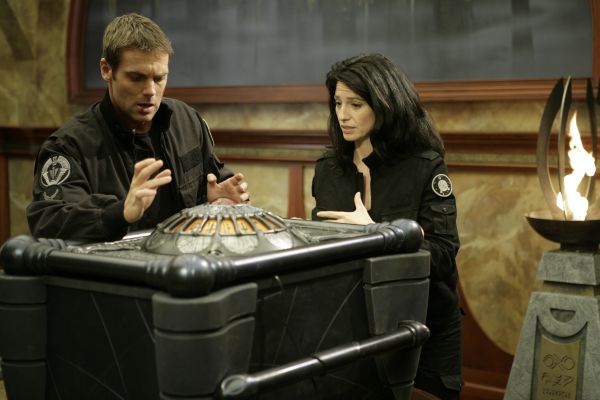



Lilith and Eve??
Last edited by orthodoxymoron on Wed Mar 23, 2016 4:06 pm; edited 5 times in total

































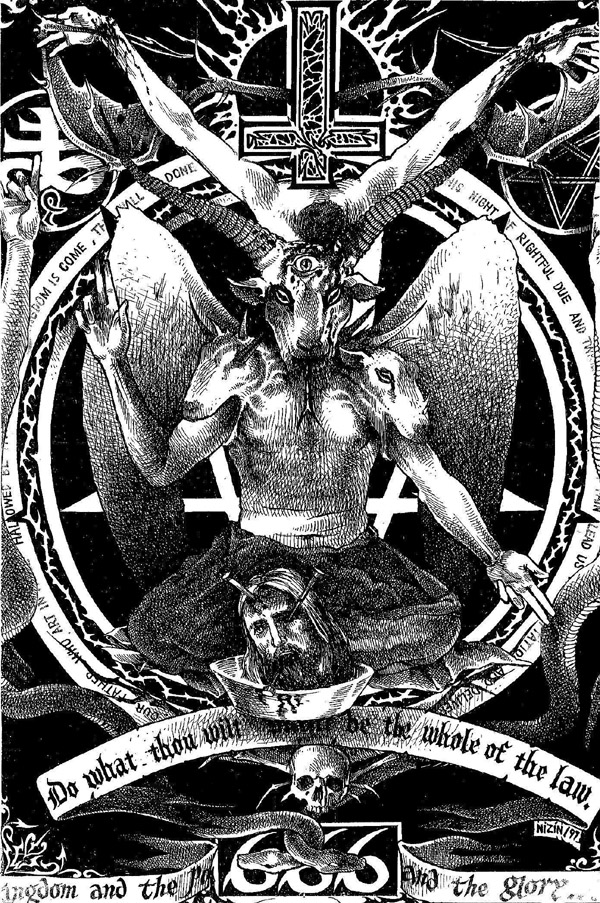
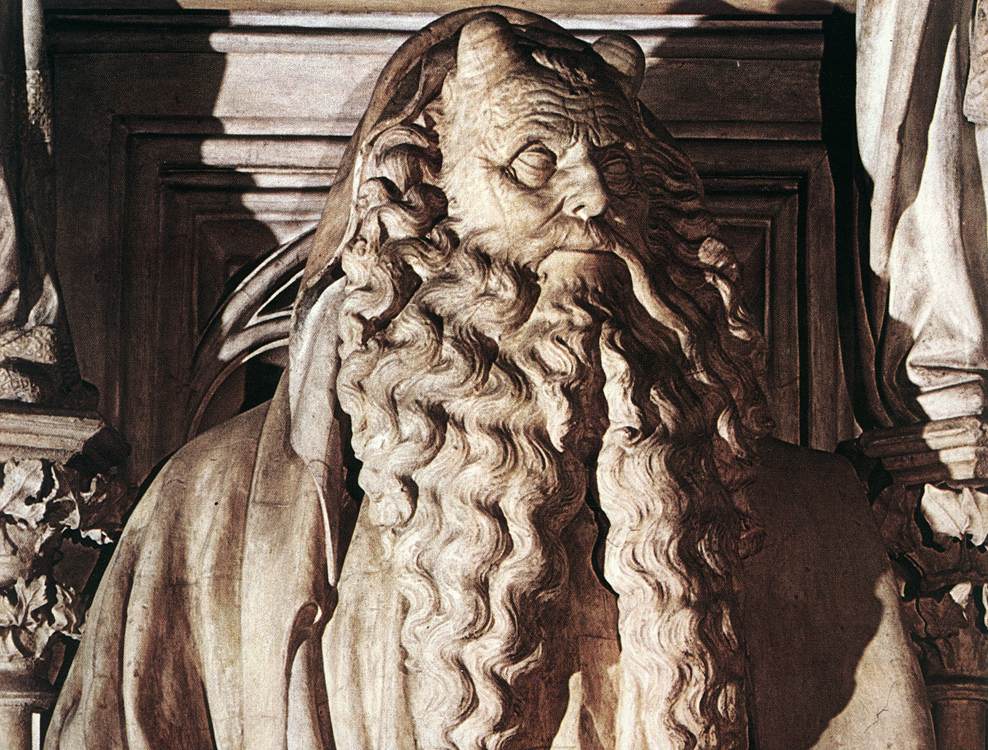
































 by calling constantly for humility, by bringing us daily to our knees, by ending with us washing each others’ feet and sharing in Christ’s broken body and shed blood, showed us that while we can continue to discuss and study, the way forward is as brothers and sisters who have a shared message to tell to the world.
by calling constantly for humility, by bringing us daily to our knees, by ending with us washing each others’ feet and sharing in Christ’s broken body and shed blood, showed us that while we can continue to discuss and study, the way forward is as brothers and sisters who have a shared message to tell to the world.  christian BS observed in your community?
christian BS observed in your community?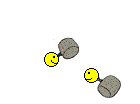

 thanx 4 your updted readinglist, extracted all relevant ideas in 44 seconds and stay happy
thanx 4 your updted readinglist, extracted all relevant ideas in 44 seconds and stay happy

